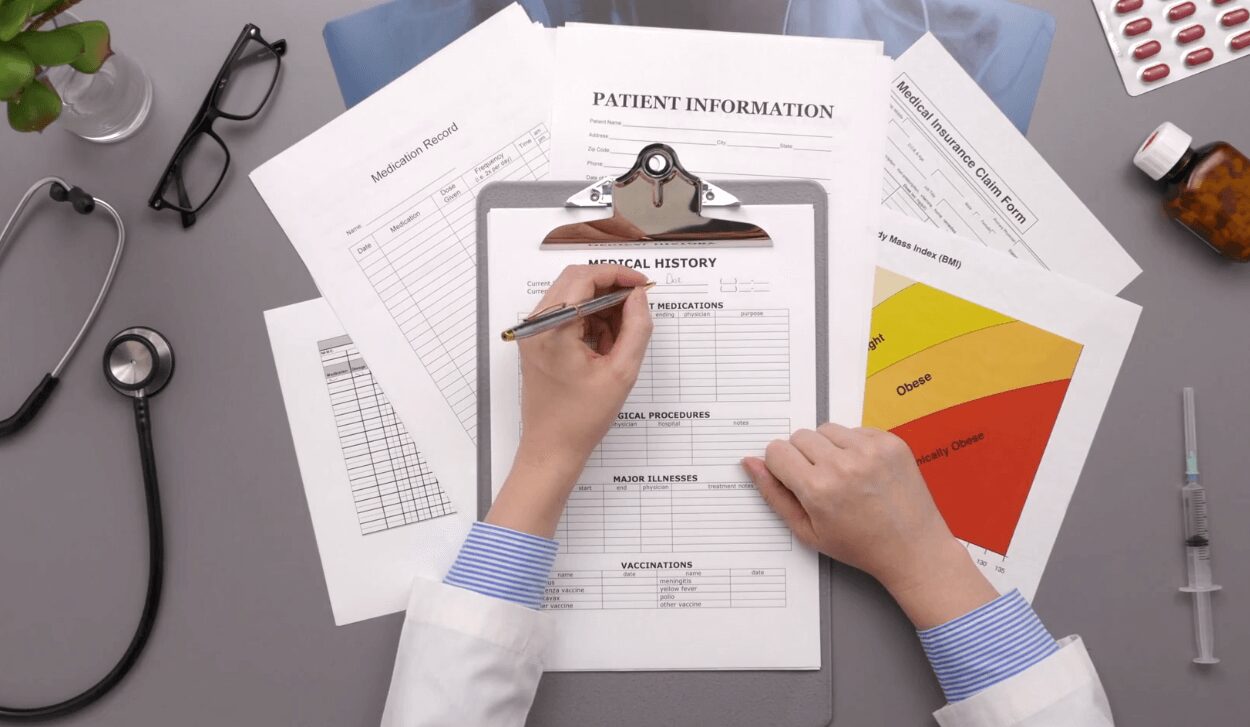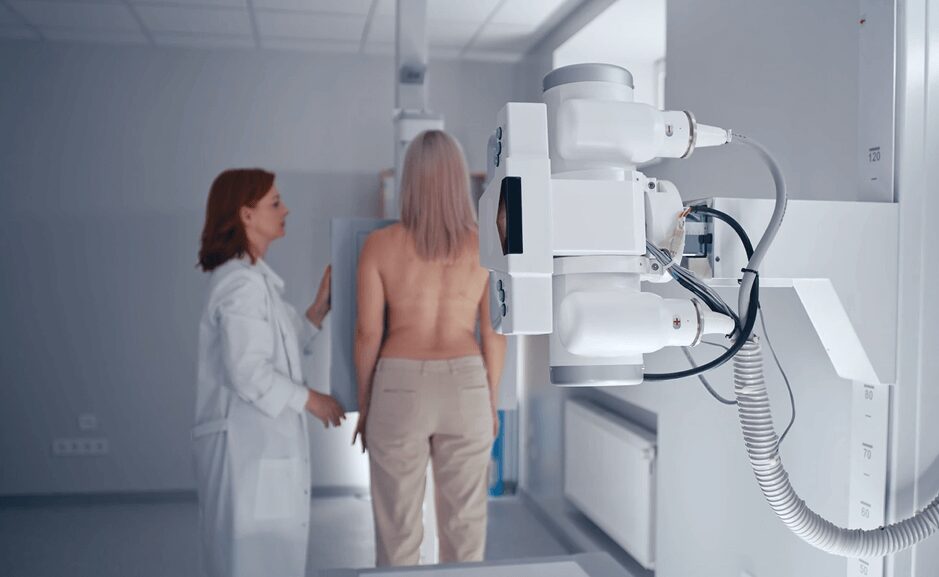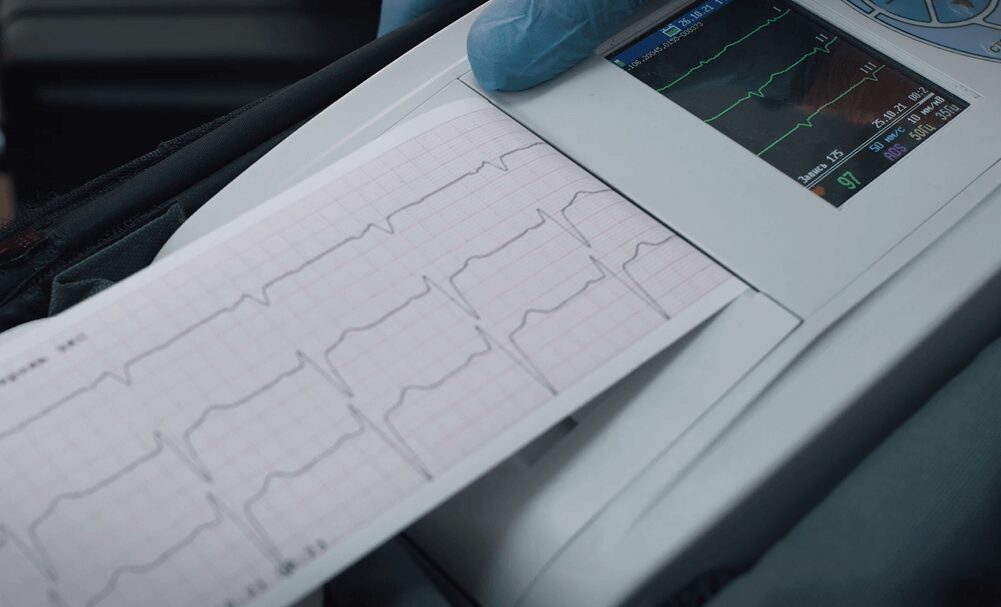Executive check-ups are crucial for early disease detection. These health evaluations involve a series of advanced diagnostic tests and screenings aimed at identifying potential health problems at an early stage. By focusing on early detection, executive check-ups enable timely interventions and effective management of conditions, helping individuals maintain their health.
Importance of Early Detection

Early detection of diseases is essential for effective treatment and better health outcomes. By identifying health issues at an initial stage, interventions can be more successful, and the progression of diseases can be slowed or even prevented. Executive check-ups play a vital role in this process by incorporating advanced diagnostic tests and screenings tailored to an individual’s health profile.
Dr. Christine Klassen from the Mayo Clinic Breast Clinic states, “We know that screening mammograms can reduce breast cancer mortality. If you get routine screening mammograms, you’re more likely to be diagnosed at an early stage, where the treatments are going to be less severe and the survival outcomes are going to be over 90%.” Regular screenings for cancers such as breast, colorectal, and prostate cancer significantly reduce mortality rates by catching the disease early when treatment options are more effective.
Moreover, early detection isn’t limited to cancer. Chronic conditions like diabetes and heart disease can also be managed more effectively when diagnosed early. For example, using AI-enabled ECGs, Mayo Clinic researchers have successfully flagged early stages of heart conditions such as low ejection fraction and cardiac amyloidosis, improving treatment outcomes significantly. Additionally, Mayo Clinic has introduced a groundbreaking multi-cancer early detection (MCED) test called Galleri™. This test can detect more than 50 types of cancers through a simple blood draw, providing a critical tool for early diagnosis and better management of cancer.
6 Key Components of an Executive Check-Up
An executive check-up is a detailed health evaluation designed to identify potential health issues early and ensure optimal health. These check-ups typically include a variety of diagnostic tests and assessments tailored to an individual’s health needs.
1. Comprehensive Medical History and Physical Examination

The check-up begins with a thorough review of the individual’s medical history and a complete physical examination. This step is essential for several reasons:
- Understanding Pre-existing Conditions: By reviewing the patient’s medical history, the healthcare provider can understand any chronic illnesses or past medical events that might affect current health. This includes conditions such as diabetes, hypertension, heart disease, or previous surgeries.
- Identifying New Symptoms: A detailed physical examination helps identify any new symptoms or concerns that may have arisen since the last check-up. This could include changes in weight, unexplained fatigue, or new pain or discomfort.
- Lifestyle and Risk Factors: The review also includes an assessment of lifestyle factors such as diet, exercise, smoking, alcohol consumption, and stress levels. Understanding these factors is crucial for identifying potential health risks and making appropriate lifestyle recommendations.
- Family Health History: Gathering information about the patient’s family health history can help identify genetic predispositions to certain diseases. For instance, a family history of cancer or cardiovascular disease can prompt more specific screenings and preventive measures.
- Establishing Baselines: Regular check-ups help establish baselines for various health parameters such as blood pressure, cholesterol levels, and body mass index (BMI). These baselines are critical for detecting any significant changes over time.
- Customized Health Plans: Based on the findings from the medical history and physical examination, healthcare providers can create personalized health plans. These plans might include specific tests, lifestyle modifications, or treatments aimed at addressing identified risks and maintaining overall health.
2. Advanced Diagnostic Tests
Executive check-ups often include advanced diagnostic tests such as blood tests, urine tests, and imaging studies. These tests help in detecting diseases at an early stage. For instance, blood tests can reveal issues like high cholesterol, diabetes, and markers for certain cancers. Imaging studies, such as MRI and CT scans, are used to detect abnormalities in the body that might not yet be causing symptoms.
3. Cancer Screenings

Regular cancer screenings are a critical component of an executive check-up. These screenings are essential for the early detection of various types of cancer, significantly increasing the chances of successful treatment. Here are some key aspects of cancer screenings typically included in an executive check-up:
- Breast Cancer – Mammograms are essential for early detection of breast cancer. These tests can identify tumors that are too small to be felt and detect changes in breast tissue that may indicate cancer. Regular mammograms have been shown to significantly reduce mortality rates from breast cancer by allowing for early intervention.
- Prostate Cancer – Prostate-specific antigen (PSA) tests and digital rectal exams (DRE) are commonly used to screen for prostate cancer. Elevated PSA levels can indicate the presence of prostate cancer, prompting further diagnostic testing and early treatment.
- Colorectal Cancer – Colonoscopies and fecal occult blood tests (FOBT) are standard screenings for colorectal cancer. These tests can detect polyps and early-stage cancers in the colon and rectum, which can be removed or treated to prevent cancer progression.
- Cervical Cancer – Pap smears and HPV tests are critical for detecting cervical cancer at an early stage. These tests help identify abnormal cells in the cervix that could develop into cancer if left untreated.
- Lung Cancer – Low-dose computed tomography (LDCT) is used for lung cancer screening, particularly in individuals with a history of heavy smoking. This test can detect lung cancer at an early stage when it is more likely to be curable.
- Skin Cancer – Regular skin exams by a dermatologist are important for detecting skin cancer early. These exams involve checking the skin for new moles or changes in existing moles that could indicate skin cancer.
4. Cardiovascular Assessments

Evaluations for heart health, including electrocardiograms (ECGs) and stress tests, are essential in identifying cardiovascular diseases early. These tests can detect conditions such as coronary artery disease, arrhythmias, and other heart-related issues that might not present noticeable symptoms initially.
Electrocardiograms (ECGs)
An ECG records the electrical activity of the heart and can identify irregularities in heart rhythm, structure, and function. It’s a fundamental test for diagnosing heart conditions such as arrhythmias and myocardial infarction.
Stress Tests
A stress test, often performed on a treadmill or stationary bike, monitors the heart’s activity under physical exertion. It can reveal issues with blood flow within the heart, helping to diagnose coronary artery disease and other cardiac problems.
Echocardiograms
This test uses ultrasound waves to create images of the heart, allowing doctors to see how the heart muscles and valves are functioning. It’s useful for diagnosing a range of heart conditions, including heart valve disease and cardiomyopathy.
Blood Pressure and Cholesterol Screening
Regular monitoring of blood pressure and cholesterol levels is crucial for preventing heart disease. High blood pressure and cholesterol can lead to atherosclerosis and increase the risk of heart attacks and strokes.
Coronary Calcium Scan
This imaging test helps detect the buildup of calcium in the coronary arteries, which can indicate the presence of atherosclerosis. It’s a non-invasive way to assess the risk of coronary artery disease.
5. Lifestyle and Nutritional Counseling

Assessments of lifestyle and dietary habits are integral components of an executive check-up. These evaluations aim to provide personalized advice on diet, exercise, and other lifestyle factors to help individuals maintain optimal health and significantly reduce the risk of developing chronic diseases.
Personalized Nutrition Plans
During an executive check-up, nutritionists and health counselors create personalized nutrition plans based on the individual’s specific health needs, dietary preferences, and lifestyle. These plans often include detailed meal plans, guidelines on nutrient intake, and strategies to address any identified dietary deficiencies or health concerns. This personalized approach ensures that the nutritional advice is practical and sustainable for the individual.
Behavioral Counseling
Effective lifestyle counseling involves behavioral strategies to help individuals adopt and maintain healthy eating habits. This can include techniques for mindful eating, recognizing hunger cues, and managing emotional eating. Counselors also provide education on reading food labels, understanding portion sizes, and making healthier food choices when dining out.
Managing Chronic Conditions
Nutrition counseling is crucial for managing chronic conditions such as diabetes, hypertension, and obesity. Proper dietary management can help control blood sugar levels, reduce blood pressure, and promote weight loss. Regular follow-ups ensure that dietary plans are adjusted as needed to achieve the best possible health outcomes.
Exercise and Physical Activity
Alongside dietary advice, executive check-ups often include recommendations for physical activity. Counselors may provide tailored exercise plans that align with the individual’s fitness levels and health goals, encouraging regular physical activity to support overall well-being. The role of physical activity in maintaining health is highlighted by various health organizations, emphasizing its importance in an executive check-up.
Long-term Health Benefits
Consistent nutritional counseling and lifestyle management have long-term health benefits, including the prevention of chronic diseases, improved mental health, and enhanced quality of life. By addressing both dietary and lifestyle factors, these assessments help individuals adopt healthier habits that contribute to lasting health improvements.
6. Mental and Cognitive Health Assessments

Mental and cognitive health assessments are crucial components of an executive check-up. These evaluations help detect early signs of cognitive decline and mental health issues, allowing for timely diagnosis and intervention. Early detection and management can significantly improve the quality of life and treatment outcomes.
Cognitive Function Tests
These tests assess various aspects of cognitive health, including memory, attention, language, and problem-solving skills. They help in identifying early signs of conditions like dementia or mild cognitive impairment.
Mental Health Assessments
These evaluations screen for mental health conditions such as depression, anxiety, and stress. Mental health assessments can include questionnaires and interviews that provide insights into an individual’s emotional and psychological well-being.
Stress Management Strategies
High levels of stress are common among executives, and effective management strategies are essential. Assessments may include evaluating stress levels and providing resources such as counseling, mindfulness training, and stress reduction techniques.
Customized Mental Health Support
Based on the assessment results, personalized mental health support plans are developed. These can include regular follow-ups with mental health professionals, lifestyle modifications, and cognitive therapies to enhance mental resilience and performance.
Conclusion
Executive check-ups offer a comprehensive approach to health management, helping individuals maintain optimal health and performance. By integrating these assessments into their routine, executives can prevent serious health issues, enhance their quality of life, and continue to perform at their best both personally and professionally.

